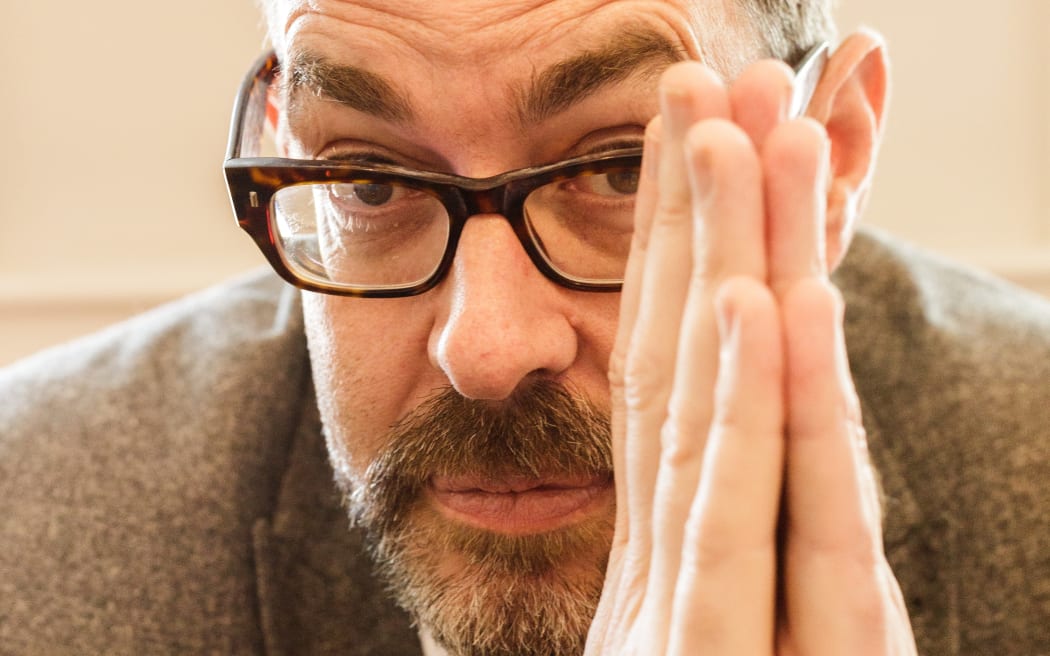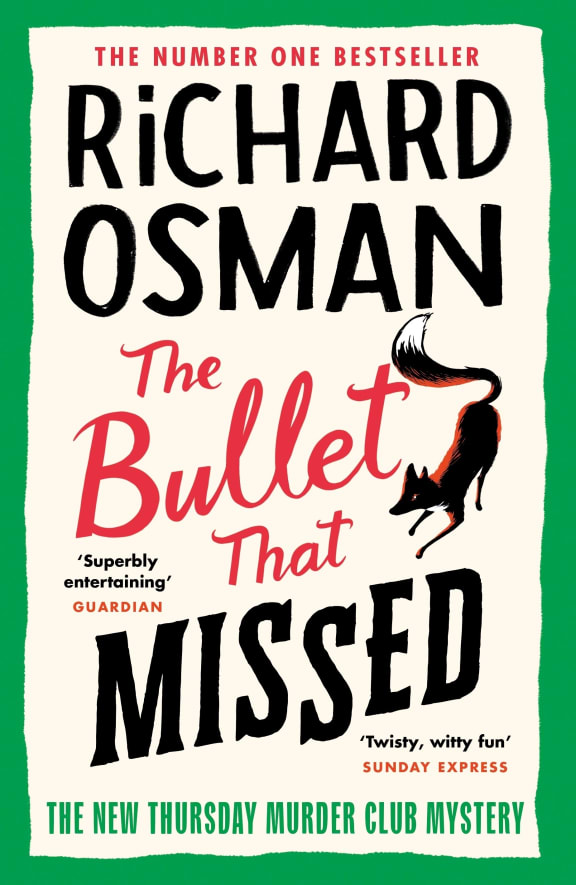As an "alpha introvert", Richard Osman says it was his worst nightmare to become a TV presenter for the first time at 40-odd – but he now loves hosting the quiz show Pointless.
Likewise, after years of working with game show production teams, he wasn't sure how he'd feel about being alone in a room writing but now loves that, too.

Richard Osman Photo: Conor O'Leary
In 2020, Richard's first book The Thursday Murder Club became the second fastest-selling debut novel in history after Harry Potter and the Philosopher's Stone.
He's now written two more books in the series – The Man Who Died Twice and The Bullet That Missed.

Photo: Supplied
An upcoming film version of The Thursday Murder Club, which is about a group of amateur sleuths living in an English retirement village, will be directed by Steven Spielberg.
The film will offer great roles for actors in their 70s and Richard says everyone has a view on who they should be.
Although he could see Gary Oldman as the headstrong former union activist Ron Ritchie, it's tricky for Richard to picture suitable actors to play his Thursday Murder Club characters.
This is not only because he's so close to them, but due to an eye condition called nystagmus, he doesn't really know what people look like.
As such, the Thursday Murder Club members get very little in the way of physical descriptions.
"But I do know what they say and I do know how they act."
Entertaining people with books that are essentially about "four people who've got each other's backs and are useful to each other", is something Richard really loves.
"You just make the world a slightly better place if you do something that makes people happy and kills a few hours for people … if you do that, I sort of don't think there's a greater thrill."
Their setting – the Coopers Chase Retirement Village – is based on the home where his mother lives.
Although at first, she asked Richard not to disclose its location for fear that would attract tourists, she and her fellow residents are now "leaning into it, as the young kids say these days".
In the late 70s, when Richard's father left his wife and two sons, his mother's carefully planned-out life was "completely ripped from her", he says.
Now she's finally found peace as the "queen bee" of her now-famous retirement home.
"It's lovely for me to give her that as a gift … cause I'll never be able to repay everything, that's a fact."
On a BBC podcast last year, Richard opened up about the food addiction he's struggled with since childhood.
While we understand the gravity of drug and alcohol addiction – and that, societally, overeating is clearly an issue – people don't take food addiction seriously, he says.
Richard now hears from people every day who thank him for speaking so frankly in public about a difficulty they also experience.
"I'll keep talking about it because the more men and women can talk about having that addiction and the embarrassment [the less stigma it will have].
"If someone can be out there saying 'listen, there's loads of us' ... Of course, it's kind of embarrassing but life is full of embarrassing things, isn't it? And the moment you expose it to light it loses some of its power."
The only way to break the hold of any addiction is to first try and get rid of the shame around it, Richard says.
His advice to others who have the same struggle – recognise what your triggers are, work out what eating behaviour makes you feel ashamed, set yourself rules and forgive yourself when you don't always stick to them.
Anyone with food addiction will inevitably fall back into bad habits sometimes, he says.
"It's just something you'll have to manage forever and you sort of have to think about food in a slightly different way."
In The Bullet That Missed, one character who's had a difficult relationship with food weeps as he cooks a stir-fry over a wok.
"If you have any sort of addiction that you hide … you start living in a way that's sort of artificial and you know is not right. And certain things represent what healthy living would be.
"The very fact that he's standing over that stir-fry … means that he's achieved something and broken a cycle, broken some sort of habit that he's in. And that's very meaningful for him.
"He's done it because he feels loved and he feels there is something to live for outside this sort of numbing thing he's been able to do [to cope]."
Currently, Richard is writing his fourth Thursday Murder Club book, "doing a little more telly" and travelling.
Next October, he'll realise a long-held dream of visiting Aotearoa for the first time.
"There's something about New Zealand that British people think just is paradise on Earth … it had better be paradise or I'm going to be absolutely livid."

